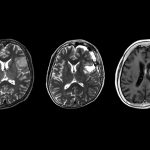
UK Kidney transplant research provides hope for the future
Kidney Research UK-funded researchers at the University of Cambridge have successfully altered the blood type on three deceased donor kidneys in a ground-breaking discovery that could have major implications for kidney patients, particularly within ethnic minority groups who are less likely to be a match for the majority of donated kidneys.
Professor Mike Nicholson and PhD student Serena MacMillan used a normothermic perfusion machine – a device which connects with a human kidney to pass oxygenated blood through the organ to better preserve it for future use – to flush blood infused with an enzyme through the deceased kidney. The enzyme acted like ‘molecular scissors’ to remove the blood type markers that line the blood vessels of the kidney resulting in the organ being converted to the most common O type.
A kidney from someone with an A blood type cannot be transplanted to someone with a B blood type, nor the other way around. But changing the blood type to the universal O will allow more transplants to take place as O can be used for people with any blood group.
Serena MacMillan, PhD student at the University of Cambridge, said: “Our confidence was really boosted after we applied the enzyme to a piece of human kidney tissue and saw very quickly that the antigens were removed. After this, we knew that the process is feasible, and we just had to scale up the project to apply the enzyme to full-size human kidneys.
“By taking B type human kidneys and pumping the enzyme through the organ using our normothermic perfusion machine, we saw in a matter of just a few hours that we had converted a B type kidney into an O type. It’s very exciting to think about how this could potentially impact so many lives.”
The discovery could be particularly impactful for people from ethnic minority groups who often wait a year longer for a transplant than Caucasian patients. People from minority communities are more likely to have B type blood and with current low donation rates from these populations, there are simply not enough kidneys to go around. In 2020/21, just over 9% of total organ donations came from black and minority ethnic donors whilst black and minority ethnic patients make up 33% of the kidney transplant waiting list.
Professor Mike Nicholson, professor of transplant surgery at the University of Cambridge added: “One of the biggest restrictions to who a donated kidney can be transplanted to is the fact that you have to be blood group compatible. The reason for this is that you have antigens and markers on your cells that can be either A or B. Your body naturally produces antibodies against the ones you don’t have. Blood group classification is also determined via ethnicity and ethnic minority groups are more likely to have the rarer B type. After successfully shifting blood group to the universal O type, we need now look to whether our methods can be successful in a clinical setting and ultimately carried through to transplantation.”















